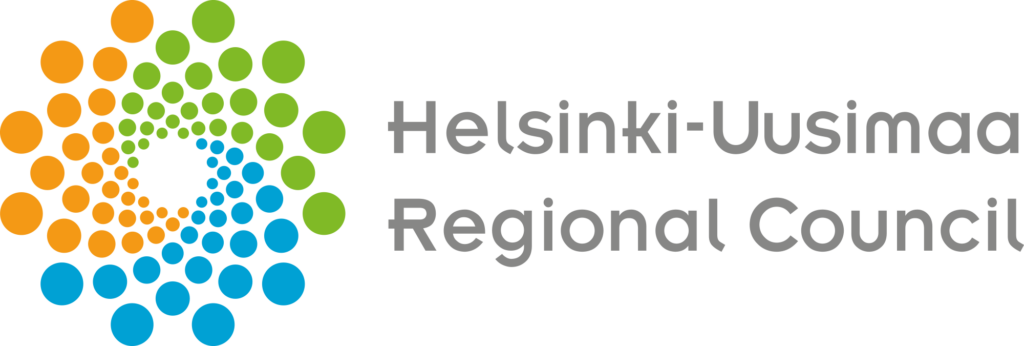EU regulations and sustainability goals challenge the tourism industry to design responsible services. Innovation hackathons provide environments for businesses, universities, and students to ideate and learn. Thus, aiming in our Carbon Neutral Experience 2.0 (CNE 2.0) -project to develop sustainable tourism as a competitive factor for tourism entrepreneurs in the Uusimaa region – enhancing the vitality, attractiveness and growth of the sector – we combined the theme and the hackathon method with businesses and students to innovate.
The tourism industry is heading for a more responsible future
International and national regulations, such as the UN Sustainable Development Goals (United Nations 2009) and the Glasgow Climate Declaration (UN Tourism 2015), guide the tourism industry towards carbon neutrality. The Glasgow Declaration aims to halve emissions by 2030 and achieve zero emissions by 2050. The declaration obliges signatories to report publicly on their activities and encourages tourism stakeholders to work together to achieve these goals. EU directives, such as the EU Sustainability Reporting Directive (2024a) and Green Claims (2024b), promote sustainable development.
Finland aims to become the most sustainably growing tourist destination in the Nordics by 2028 (The Ministry of Economic Affairs and Employment 2022). Visit Finland (2023) has outlined its vision, aiming for Finland to become a leading destination for sustainable tourism and the best choice for responsible travellers. The Sustainable Travel Finland (STF) program launched in 2020 aims at ensuring sustainable travel in Finland and provides a national label for tourism enterprises, enhancing visibility in foreign markets and attracting responsible tourists. The program promotes the Glasgow declaration. Enterprises can benefit from the STF label also when negotiating financing.
The international travel trends report predicts changes in consumer flows due to climate warming and expects increase of tourism in the Nordic countries (Visit Finland 2022). The industry must anticipate the change, and plan actions with sustainable travel offer. The industry should plan services that regenerate nature (e.g. the management of carbon sinks, the eradication of invasive alien species, the help of seal nesting, the restoration of meadows and shores).
The use of hackathons for innovation
Hackathons are time-limited events where experts create solutions for challenges. They foster innovation, learning, and idea-sharing in a relaxed environment. The name is an amalgamation of the words hacking and marathon. (Hackathon.com 2021.)
Using hackathon as an educational learning method, brings new ways for students to learn. They tackle real-world challenges and topics linked to it, learn new tools to innovate and practice collaboration with team members and presenting ideas. As an educational method a hackathon develops students critical thinking and problem-solving skills (Schulten & Chounta 2024).
Effective hackathon planning in our case involved selecting the right tools, coaching methods, guest speakers, types of challenges, long-term targets, and ensuring the challenge enhances sustainability. We adapted our hackathons into an eight-week curriculum, with teams working independently between lessons.
In our experience, this approach benefits all parties. Students have innovative ideas, and they normally look for solutions out of the box. Companies can even be provided with recruitment opportunities and at least enhance their branding image among potential future customers. At Haaga-Helia, our students are geographically diverse, which gives the companies a chance to adapt modern technologies or solutions from other countries.
The Röykkä Resort challenge
Our CNE 2.0 project had an opportunity to invite Röykkä Resort, a new service and experience provider in hospitality, to co-operate with Haaga-Helia in autumn 2024.
Röykkä Resort is a new concept based on an old sanatorium building from 1903 and its beautiful environment. The resort offers accommodation, wellbeing, workspaces, and meeting services. The challenge given to the students was to find ideas that make Röykkä a sustainable resort that implements circular economy.
The students innovated several new concepts. The main idea of all the concepts was how to benefit from the beautiful nature around the main building without forgetting the restoration of nature.
A customer can be almost anyone who needs a place for resting their brain. Services will be offered to help customers have fresh perspectives and find a new way for living. One idea was to offer weekend or week at Röykkä Resort for new Finns or for foreign people to get firsthand experience in Finnish customs, traditions, and social etiquette. A resort adapting Finnish culture.
The other common aspect in the concepts was to make Röykkä Resort a silent environment without any disturbance of social media or cell phones. The idea was to offer companies a place where professionals step away from screens and the digital word to reconnect with nature, and innovate new guided activities with real human connections.
As the resort is in a unique environment near a natural resort, it has all the possibilities to develop and offer sustainable tourism opportunities
The Carbon Neutral Experience 2.0 (CNE 2.0) project promotes carbon neutrality in the tourism, hospitality and events sectors in Uusimaa during 2023-2025. The project is coordinated by Novago Business Development and co-implemented by Haaga-Helia and Yrkeshögskolan Novia. The project is funded by the Helsinki-Uusimaa Regional Council.

References
European Union. 2024a. Corporate Sustainability Reporting Directive, 2023. Accessed 2.1.2025.
European union. 2024b. Directive 2024/825 [Tackling Green Claims]. Accessed 20.2.2025.
Hackathon.com. 2021. What is a Hackathon and How does It Work? Complete Guide. Accessed 18.2.2024.
The Ministry of Economic Affairs and Employment. 2022. Finnish tourism strategy 2022-2028. Accessed 2.1.2025.
Schulten, C.& Chounta, I. 2024. How do we learn in and from Hackathons? A systematic literature review. Education and Information Technology. 29., 20103–20134.
United Nations. 2009. The 2030 Sustainable Development Goals. Accessed 2.1.2025.
UN Tourism 2015. The Glasgow Declaration on Climate Action in Tourism. Accessed 19.11.2024.
Visit Finland. Kestävä matkailu Suomessa 2023 [Sustainable Travel in Finland 2023], 2023. Accessed 19 December 2024.
Picture: Shutterstock